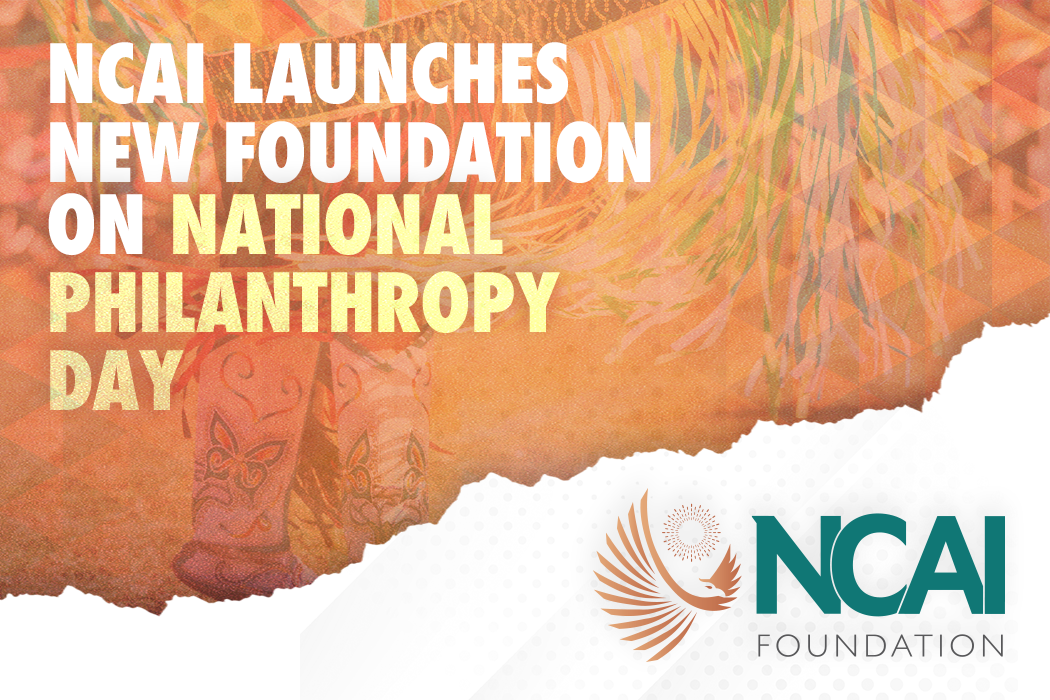
"Today marks a pivotal moment in our ongoing journey towards equity and empowerment for Tribal Nations," said Greg Masten (Yurok), President of the newly formed NCAI Foundation. "The NCAIF is not just a foundation; it's a beacon of hope and a testament to our unwavering commitment to uphold tribal sovereignty, empower our leaders, and build a resilient future for our youth and our Nations. Through the NCAIF, we are forging true partnerships between Tribal Nations and Philanthropy, dedicated to creating a future where Tribal Nations thrive, supported by the resources and recognition they rightfully deserve."
The NCAI Foundation's mission is multifaceted, focusing on four core areas: Upholding Tribal Sovereignty, Empowering Tribal Leadership, Cultivating Youth Leadership, and Fortifying Tribal Nations. By offering grant funding under the Fortifying Tribal Nations program, NCAIF aims to be a catalyst for change, providing more than just financial resources but also serving as a pivotal connecting point for Tribal Nations and the philanthropic sector.
Despite American Indian and Alaska Natives representing nearly 3 percent of the U.S. population, they have historically received less than 0.5 percent of philanthropic dollars for their strategies or initiatives1. NCAIF seeks to address this disparity by ensuring that more resources are directed toward supporting tribal communities in diverse areas of work.
A cornerstone of NCAIF's approach is the innovative Equity and Sovereignty Framework. This framework guides the foundation’s grantmaking processes, ensuring they are deeply rooted in principles of equity and respect for tribal sovereignty. The framework will also inform NCAIF’s approach to address the philanthropy sector's interaction with Tribal Nations, emphasizing collaboration, respect for tribal governance, and the promotion of culturally appropriate practices. It's a significant step toward rectifying historical imbalances and fostering true, respectful partnerships between philanthropic entities and Tribal Nations.
Traditional Philanthropy vs. Equity & Sovereignty Framework
Traditional philanthropy often operates with a top-down approach, where donors decide what is best for beneficiaries, which can unintentionally perpetuate systemic inequities.
• Cultural Respect and Integration: While traditional philanthropy may sideline Native wisdom, the equity and sovereignty approach centers connection and respect.
• Long-term Solutions: Rather than temporary fixes, this approach seeks sustainable, regenerative change, grounded in the unique needs and aspirations of each Tribal Nation.
"As we stand at the threshold of a new era with the launch of the NCAI Foundation, I am reminded of the profound responsibility we carry as stewards of our communities' future," said Larry Wright, Jr., a citizen of the Ponca Tribe of Nebraska and the Executive Director of NCAI. "Our leadership is charting a strategic course for the organization and the NCAI Foundation that is a journey of both honor and duty. The Equity and Sovereignty Framework is more than just a policy tool; it is a commitment to Tribal Nations that every decision we make, and every partnership we forge will be done with the utmost respect for our sovereignty and with an unwavering focus on equity. This is our pledge to create a lasting impact that honors the past while building a resilient and prosperous future for tribal communities."
###
About the National Congress of American Indians:
Founded in 1944, the National Congress of American Indians is the oldest, largest and most representative American Indian and Alaska Native organization in the country. NCAI advocates on behalf of tribal governments and communities, promoting strong tribal-federal government-to-government policies, and promoting a better understanding among the general public regarding American Indian and Alaska Native governments, people and rights. For more information visit www.ncai.org.
